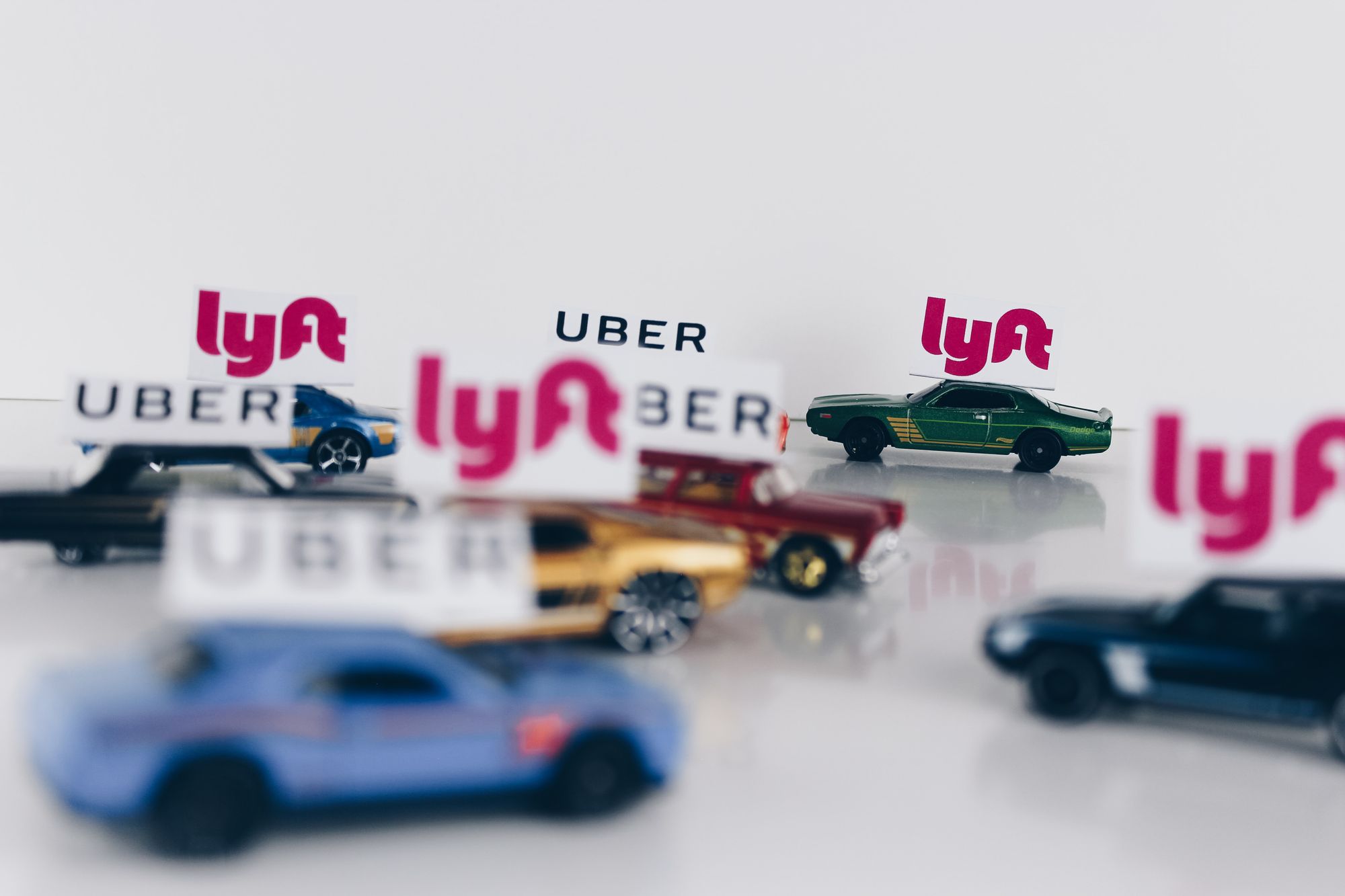Reshaping Gig Work and Redefining Worker Classifications

In 2021, over a third of American workers did freelance work, according to a survey by Upwork (Gallagher). A similar report by the Pew Research Center found that 16% earned income through gig work on online platforms, and among this percentage, 31% said this was their primary source of income (Anderson et al.). The gig economy is a labor market consisting of temporary workers who provide on-demand work instead of a full-time, long-term commitment and will be worth around $455 billion in 2023 (Kolmar).
In October 2022, President Joe Biden and the U.S. Labor Department introduced a new proposal to reclassify millions of independent gig workers into full-time employees. The proposal addresses growing concerns regarding whether independent contractors receive fundamental rights, such as regulations on hours, health and safety, and compensation. While this proposal would wear off the flexibility that comes with the title of an independent contractor, Biden argues that it allows workers to unionize and receive better treatment (The Editorial Board). However, various parties and stakeholders have reacted differently to the labor rule, which this piece will further explore.
The Problem: Misclassification
According to the IRS, the distinction between an independent contractor and an employee lies in the employer's level of control. If an individual is an independent contractor, the employer controls the outcome of their work—the deliverable—but not the process of producing it. In addition, independent contractors are self-employed and do not undergo training and onboarding.
Approximately 30% of U.S. workers are incorrectly classified as independent contractors when they should be classified as employees (Ivanova). They are misclassified because employers prefer to hire them as independent contractors, as employees cost 30% more (Wiessner et al.). Employers believe that independent contractors enjoy the flexibility and autonomy that comes with their job, such as choosing their working hours and working for multiple companies (Ivanova). Nonetheless, progressives view this as a burden rather than a benefit: gig workers struggle with long working hours, irregular pay/no steady source of income, and no liberty to collectively bargain (The Editorial Board). 46% of current or former gig workers think employers give them inequitable benefits (Anderson et al.).
Trump vs. Biden Administration Policies
Former President Donald Trump's administration ruled that independent contractors—workers with their own businesses or those who work for multiple companies at once—are not subject to federal minimum wage laws and benefits like paid sick leave and health coverage (Chapman and Olson). This policy resulted in employers exploiting independent contractors, which is what incumbent President Biden aims to tackle.
Biden's new rule states that "economically-dependent workers"—self-employed contractors working for one single employer—should be considered employees and receive all the associated rights and benefits (The Editorial Board). The proposal redefines employment to “include multiple new factors, including how permanent the position is, how integral the work is for the employer, and the skill levels it requires” (Kohli). Consequently, Biden's proposal allows for greater protection from exploitation and harassment.
Impact of the 2022 Labor Department Proposal
The Biden administration’s proposal will affect various stakeholders, from workers to employers to the government. For example, CBS News interviewed Rondu Gatt, a member of the labor rights activist group Gig Workers Rising. He said, "Uber, Lyft, and DoorDash make their money off of drivers like me and govern my pay and working conditions, yet they claim they don't need to protect my safety or even pay me a living wage" (Ivanova). The new proposal will offer legal protections against the problems Gatt referenced. Additionally, according to Nicole Moore, Lyft driver and president of the group Rideshare Drivers United, the ruling will clarify federal classifications and rules. The gig workers now classified as employees will be covered by minimum wage laws, overtime pay, and the right to form unions (Wiessner et al.).
However, the proposal might trouble gig employers such as Instacart, Airbnb, and Grubhub. Such companies prefer hiring independent contractors for cheap, as contractors do not need to be paid overtime or minimum wages or reimbursed for job expenses under Trump's rule (Ivanova). Wedbush analyst Dan Ives believes that the new proposal will alter existing business models to keep operating costs low—the Department of Labor predicts that gig employers will have to bear a cost of $188.3 million. Certain companies have released statements in response to the proposal: Lyft said there is no "no immediate or direct impact" while “Uber asked the administration to listen to workers.” However, some economic impacts have already been felt, particularly in the stock market. The stocks for various gig companies plummeted at the news of the proposal. For example, DoorDash decreased by about 9%, while Uber and Lyft fell by nearly 10% (Wiessner et al.).
Lastly, the ruling also affects the government and the Labor Department. According to CBS News, misclassifying workers costs "states billions of dollars in tax revenue" (Ivanova). This is because gig workers’ earnings are eroded by job expenses that are not reimbursed, so they make lower incomes. Therefore, correct employee classification will allow for larger tax bills, benefitting the government. Moreover, according to Kohli, the proposal has a small scope, as it only influences the Labor Department and no other federal agencies like the IRS. However, professor Mark Gough, who teaches labor and employment relations at Pennsylvania State University, believes that the new ruling will drive other departments to adjust their practices. “It will, in time, have an indirect effect on changing the way judges, different legislators and administrative bodies interpret employment status, and what workers’ rights are,” said Gough.
The Biden administration's new proposal drastically changes the labor market by reclassifying workers according to their level of economic dependency, permitting over 30% of U.S. contractors to receive the rights and benefits of a regular employee (Ivanova). Further research could delve into which industries are most impacted by the proposal and what steps gig companies can take to minimize the disruption to the economy. But, as for now, the proposal empowers workers to obtain greater protection.
Works Cited
Anderson, Monica, et al. “The State of Gig Work in 2021.” Pew Research Center: Internet, Science & Tech, 8 Dec. 2021, www.pewresearch.org/internet/2021/12/08/the-state-of-gig-work-in-2021.
Chapman, Michelle, and Alexandra Olson. “Labor Department Proposal Could Upend Rules for Gig Workers.” PBS NewsHour, 11 Oct. 2022, www.pbs.org/newshour/economy/labor-department-proposal-could-upend-rules-for-gig-workers.
Gallagher, Katie. “Upwork Study Finds 59 Million Americans Freelancing Amid Turbulent Labor Market.” Upwork, 8 Dec. 2021, investors.upwork.com/news-releases/news-release-details/upwork-study-finds-59-million-americans-freelancing-amid.
“Independent Contractor (Self-Employed) or Employee? | Internal Revenue Service.” IRS, 2 Nov. 2022, www.irs.gov/businesses/small-businesses-self-employed/independent-contractor-self-employed-or-employee.
Ivanova, Irina. “Biden Administration Proposes New Rule That Could Upend ‘Gig’ Work.” CBS News, 11 Oct. 2022, www.cbsnews.com/news/biden-administration-proposes-new-rule-that-could-make-gig-workers-full-time-employees.
Kohli, Anisha. “A Federal Proposal Could Turn Gig Workers Into Employees. Here’s What That Means.” Time, 12 Oct. 2022, time.com/6221481/gig-workers-biden-proposal.
Kolmar, Chris. “23 Essential Gig Economy Statistics [2022]: Definitions, Facts, and Trends on Gig Work.” Zippia, 22 Sept. 2022, www.zippia.com/advice/gig-economy-statistics.
The Editorial Board. “Biden Goes After Gig Workers.” WSJ, 11 Oct. 2022, www.wsj.com/articles/biden-goes-after-gig-jobs-labor-department-rule-independent-contractors-employees-11665522000.
Thought Catalog. Unsplash, 25 Apr. 2018, https://unsplash.com/photos/x5GdvJ-taiQ. Accessed 3 Jan. 2023.
Wiessner, Daniel, et al. “Biden Labor Proposal Shakes up Gig Economy That Relies on Contractors.” Reuters, 11 Oct. 2022, www.reuters.com/world/us/new-biden-labor-rule-would-make-contractors-into-employees-2022-10-11.



